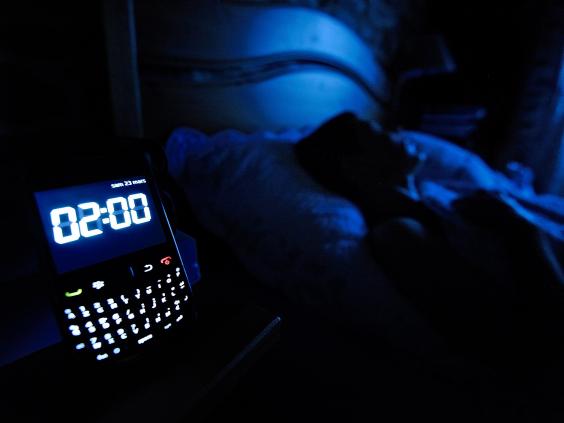Sleep deprivation could lead to diabetes, study finds
More than four million people in the UK now have diabetes

Your support helps us to tell the story
From reproductive rights to climate change to Big Tech, The Independent is on the ground when the story is developing. Whether it's investigating the financials of Elon Musk's pro-Trump PAC or producing our latest documentary, 'The A Word', which shines a light on the American women fighting for reproductive rights, we know how important it is to parse out the facts from the messaging.
At such a critical moment in US history, we need reporters on the ground. Your donation allows us to keep sending journalists to speak to both sides of the story.
The Independent is trusted by Americans across the entire political spectrum. And unlike many other quality news outlets, we choose not to lock Americans out of our reporting and analysis with paywalls. We believe quality journalism should be available to everyone, paid for by those who can afford it.
Your support makes all the difference.Our sleep deprived lives could lead to a rise in getting diabetes, according to a new study.
The study, published in Diabetes Care and conducted by the University of Chicago, found that not sleeping well can increase your risk of developing diabetes, particularly affecting people who work long hours.
People who are tired will eat more because they want to get energy from somewhere. "This could mean consuming sugar or other foods that can spike blood sugar levels,“ Dr Maarouf, the diabetes education director of the Stark Diabetes Center at the University of Texas Medical Branch in Galveston, told WebMD.
She explains: “I really push people to eat properly throughout the day and get their blood sugars under control so they sleep better at night. If you get your blood sugar under control, you will get a good night sleep and wake up feeling fabulous with lots of energy.”
Author of the study, Dr Josiane Broussard, an assistant research professor at the department of Integrative Physiology at the University of Colorado, said: "In this short-term study, we found that two long nights spent catching up on lost sleep can reverse the negative metabolic effects of four consecutive nights of restricted sleep."
Diabetes occurs when your body doesn’t produce enough insulin. A lack of sleep can lead to insulin resistance, which means your body finds it harder to break down sugars. As well as leading to weight gain, when you’re tired, there’s insulin resistance, which means the body can’t break glucose down into energy. If you’re tired and insulin can’t do its job properly, then sugar levels can build to such a point that the insulin could harm the eyes, kidneys, nerves, and heart.
However, the study is encouraging, says Dr Broussard: "It shows that young, healthy people who sporadically fail to get sufficient sleep during the work week can reduce their diabetes risk if they catch up on sleep during the weekend."
The University of Chicago study recommends sleeping two nights of extended sleep, or more than 8.5 hours to lower the risk of diabetes.
Join our commenting forum
Join thought-provoking conversations, follow other Independent readers and see their replies
Comments